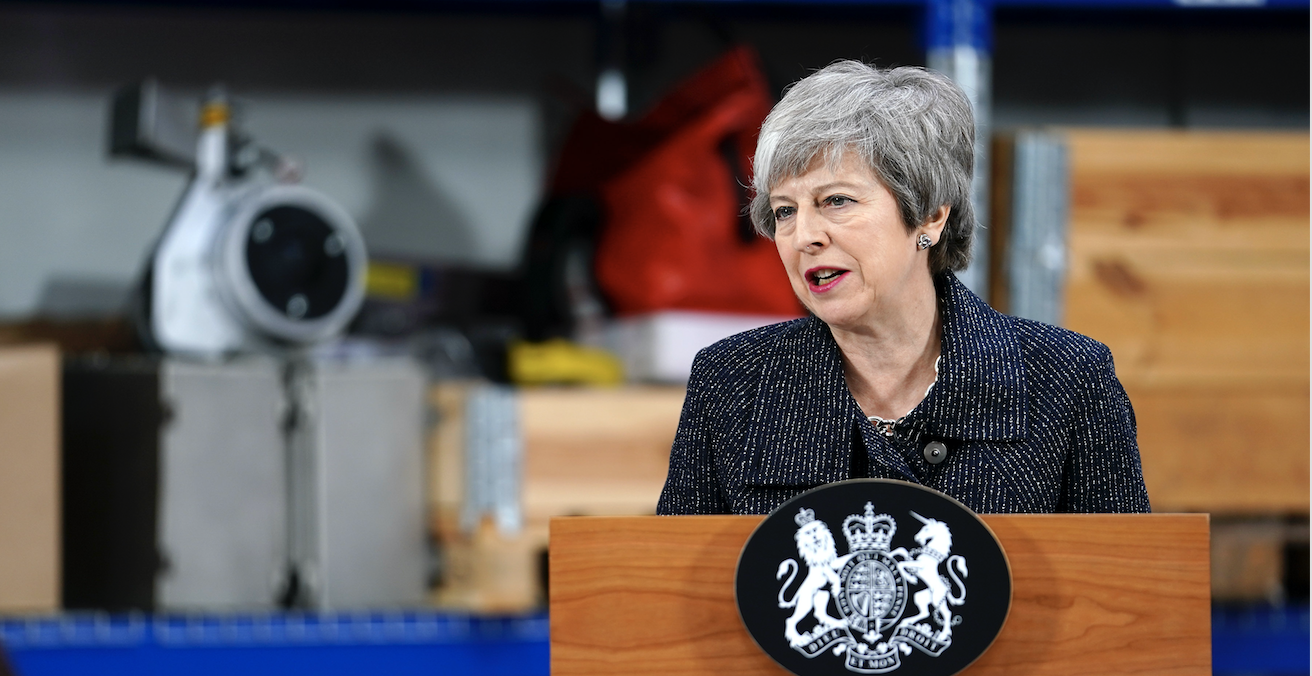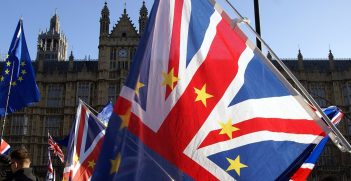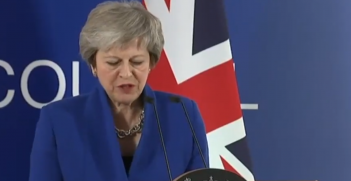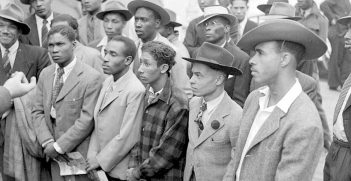May Gets Into Last Chance Saloon

For 30 months of time-consuming, often repetitive and tedious, negotiations with Europe’s leaders, an assortment of ministers and officials doing British prime minister Theresa May’s bidding have largely kept their counsel. Almost without exception, they have resisted the temptation to criticise Mrs May or her tactics.
This week, after May failed for a second time by a large majority to win MPs’ support for the exit plan she agreed with the European Union last November, some Europeans involved in the negotiation process vented their frustration and anger. According to the Financial Times, which has more correspondents in Europe than any other serious newspaper, Europe’s leaders are “fed-up, impatient, and astonished at the UK’s transformation from a paragon of political pragmatism into a prototype of populist paralysis.”
Michel Barnier, the EU’s chief negotiator, told the European Parliament in Strasbourg there was now a strong chance of Britain leaving the EU without a deal, despite MPs voting overwhelmingly against such an outcome. Barnier said negotiations were “over” and the UK had now to tell Brussels “what relationship it wants.” Only then can the other 27 EU nations make a decision on a British call for a three-month extension to the deadline for Britain to leave.
His remarks followed an extraordinary day in Westminster on Thursday when MPs voted down by only two votes an attempt to extend the Article 50 deadline indefinitely to allow debate and voting on a variety of options to May’s rejected deal. A secondary motion for a call for a second referendum – the so-called people’s vote – was overwhelmingly rejected, with Opposition MPs obeying the party’s whips to vote it down despite their leader, Jeremy Corbyn having announced two weeks ago he supported it.
These determinations have done nothing to clarify where Brexit is headed. For a start, there is no certainty the 27 EU countries, which must agree unanimously to Britain’s request for an extension, will do so. Such is the anger and irritation at Westminster’s inability to come up with a clear definition of what it wants.
Kai Whittaker, a leading CDU member of the Bundestag, told BBC Radio’s The World Tonight “Time is running out and I see no substantial reason why we should go in for an extension; we are still wondering what Britain wants.” His exasperation and anger were clear in his voice.
“We need a strong vote from the House of Commons for the deal that is on the table. If we are not going to get that I do not see how we are going to prolong the discussion we have been having now for three years. In the House of Commons there is no majority for anything; there is only a majority for nothing. We can’t prolong this never-ending story of Brexit. We need to deal with other more important issues in the world. China is moving further ahead in digital issues; Russia is interfering in European politics; and America is leaving us behind in terms of security.”
Herr Whittaker’s observations raise an important point. Nowhere in the arid Brexit debate as it is conducted in Britain has there been any discussion of the role and importance of the European relationship in international relations. The debate has been confined to domestic issues. The prime minister’s entire focus has been on what she calls “the wishes of the British people” as expressed in an unsatisfactory and now out of date referendum, and her desire to hold a breaking Conservative Party together.
Ironically, May’s two defeats in the House of Commons may have unexpectedly provided here with one last chance at getting her deal through. She says she will bring the deal back for a third vote next week and, if that fails, will seek a longer extension to Article 50.
Her intention has received strong support from European Commission president Donald Tusk, who has told the EU 27 a long term extension would be sensible “to allow the UK rethink its Brexit strategy and build consensus around it.” The prospect has in the last 24 hours galvanised the leaders of Northern Ireland’s Democratic Unionist Party into actively reconsidering reversing their opposition to May’s deal. Their fear is that if Article 50 is to be extended by a year or two, there is a danger Brexit will never happen. That fear is shared by some of the hard-right Tories in the so-called European Research Group, though others see a long term extension as an opportunity to persuade Mrs May to resign and seek to replace her with one of their number.
So what happens now? Theresa May has entered the Last Chance Saloon. Next week she must persuade MPs to reverse their opposition to her deal, arguing that it delivers immigration control, freedom from the powers of the European Court, an end to participation in the common agriculture and fisheries policies, and the opportunity for the UK to negotiate its own trade deals. What it does not do is to spell out how and when these trade deals, including that with the EU, will be delivered. This remains a major uncertainty.
Early calculations suggest May will fail again. Some of her early supporters, including up to 20 members of her ministry, are disillusioned. Her competent chancellor of the exchequer, Philip Hammond, has made it clear he favours a different Brexit to that she has negotiated, one that would allow Britain to remain in the EU single market and customs union.
May is losing media support too. The Times, whose coverage of Brexit has arguably been the most balanced of the serious media, says her strategy for an orderly Brexit is in tatters. It thundered: “She is ill-equipped to lead the country out of what is a political and constitutional crisis without parallel in modern times.”
“Her fundamental flaws throughout the process have been an unsound strategy, misreading her opponents in Brussels and her refusal to be honest about the compromises and trade-offs that the rupture of 46 years of economic and security co-operation was bound to entail. Instead, she has tried to conduct the negotiations by stealth, running down the clock on her cabinet, her party, parliament and the public in the hope that when presented at the 11th hour with whatever messy compromise they would fall into line.”
Colin Chapman is a writer, broadcaster and public speaker, who specialises in geopolitics, international economics, and global media issues. He is a former president of AIIA NSW and was appointed a fellow of the AIIA in 2017.
This article is published under a Creative Commons License and may be republished with attribution.





